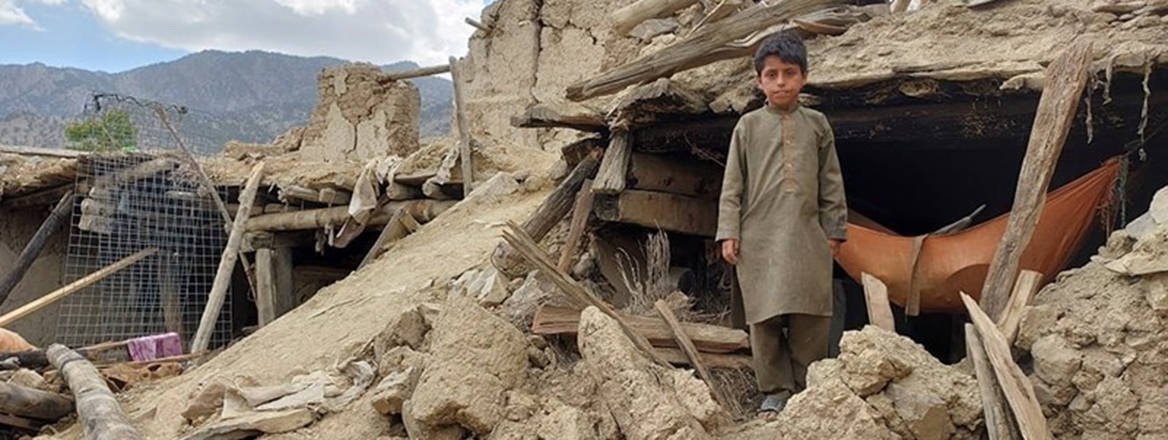Afghanistan Under the Taliban: The Unintended Consequences of Sanctions
The humanitarian crisis in Afghanistan continues to deteriorate. Is the international community helping or exacerbating the situation?
Since the fall of Kabul in August 2021, Western countries have faced a dilemma as they seek to harmonise contradictory objectives: restricting the Taliban’s finances and access to the international financial system via the implementation of existing sanctions regimes; and maintaining financial channels in order to support the Afghan economy and provide humanitarian assistance.
In January 2022, the UN estimated that 24.4 million Afghans required humanitarian aid, and the World Food Programme and the Food and Agriculture Organization assessed that 18.9 million Afghans will face acute food insecurity this year. This crisis was only worsened by the major earthquake in June, which left hundreds dead and thousands in greater need.
Yet, despite the growing need for aid, international support has been restricted as a result of longstanding and wide-ranging international sanctions on the Taliban – which have had greater impact since the group seized power – and heightened concerns that donor and other funds flowing into the country might be appropriated by the terrorist-linked group, which includes designated individuals in key ministerial positions. This has created a complex financial landscape that Western countries and their charities, remittance companies and banks have found challenging to navigate.
However tightly the distribution of funds is controlled, the inflow of foreign aid into the country will present financing opportunities for the new rulers, who are well-known for taxing and extorting donor funding
Western governments have tried to grapple with this challenge. Having frozen $7 billion of Afghanistan Central Bank assets following the Taliban takeover, the US Treasury has now announced the establishment of a fund using $3.5 billion of these assets. The Afghan Fund will protect, preserve and make targeted disbursements for the people of Afghanistan, excluding the Taliban. Yet, however tightly the distribution of funds is controlled, the inflow of foreign aid into the country will present financing opportunities for the new rulers, who are well-known for taxing and extorting donor funding.
This complex environment requires a new policy approach to financial engagement with Afghanistan. To consider ways of effectively responding to this new reality, the Centre for Financial Crime and Security Studies at RUSI has produced a series of video interviews featuring experts, journalists, international and local NGOs, and financial experts to provide policy recommendations tailored to the situation.
Ashley Jackson, Co-Director of the Centre for the Study of Armed Groups at the Overseas Development Institute, first sets out the current illicit financial landscape in Afghanistan, noting the Taliban involvement in the trafficking of numerous commodities and the operation of a proficient taxation system on both the illicit markets and the wider population.
As noted, core to the challenges faced by the Afghan financial system and those seeking to interact with it is the impact of the Taliban takeover and the resulting implications of the existing sanctions regimes. With this in mind, Alex Zerden, Adjunct Senior Fellow at the Center for a New American Security, explores the wider financial landscape in Afghanistan.
While the Taliban’s takeover of Afghanistan called for a policy response from Western countries to prevent the enrichment and proliferation of the group, Negina Yari, Director of Afghans 4 Tomorrow, describes the unintended negative consequences of sanctions for the impact and activities of NGOs as they seek to mitigate the accelerating humanitarian disaster.
This detailed account resonates with the impact on the daily lives of Afghan people. Roya Musawi, Afghan journalist and former spokesperson for the International Committee of the Red Cross in Afghanistan, describes the current financial hardships of Afghan citizens under the Taliban regime, including limited access to financial services, growing social exclusion, and the need for widespread use of hawala.
Finally, Arian Sharifi, Lecturer at Princeton University and former director of National Threat Assessment at Afghanistan's National Security Council, addresses the recent developments regarding the US Treasury announcement of the partial liberation of Afghanistan’s Central Bank reserves and the outlook for the country.
A year since the Taliban’s takeover of Afghanistan, there is widespread evidence of its violence and brutal discrimination against the Afghan people, and its heavy involvement in illicit markets. The longstanding sanctions that have for years sought to financially constrain the Taliban and its leadership are now having an increased impact on Afghanistan’s society, given the group’s control of the national government, and are taking a toll on essential NGO capabilities and the Afghan population at large.
Nuance is required in the international community’s financial response to the country if these measures are not to reap unintended consequences and exacerbate hardship and suffering. Dialogue must inevitably involve the Taliban as de facto rulers, and incoming funds must be allowed to alleviate the country’s dire situation without the necessary close scrutiny and monitoring undermining the humanitarian objectives. It is unquestionably not an easy task, but as the voices of those close to the realities on the ground reveal, the current approach must urgently evolve to one that supports the betterment of the Afghan people.
The views expressed in this Commentary are the authors’, and do not represent those of RUSI or any other institution.
Have an idea for a Commentary you’d like to write for us? Send a short pitch to commentaries@rusi.org and we’ll get back to you if it fits into our research interests. Full guidelines for contributors can be found here.
WRITTEN BY
Tom Keatinge
Director, CFS
Centre for Finance and Security
Gonzalo Saiz Erausquin
Research Fellow
Centre for Finance and Security
- Jim McLeanMedia Relations Manager+44 (0)7917 373 069JimMc@rusi.org



